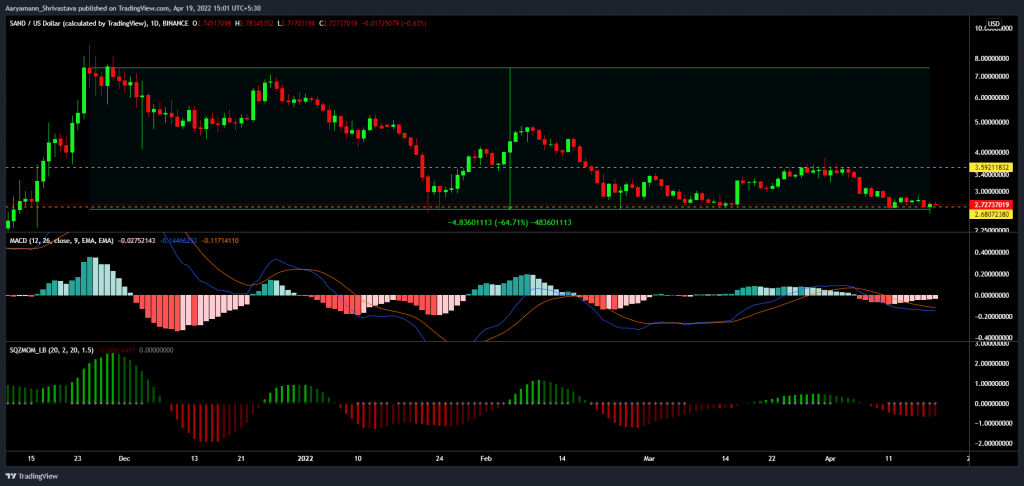The broader market’s bearishness peaked on 18 April as The Sandbox at one point lost its 3-month-long critical support. However, it later recovered with a close above $2.68 (critical support level).
Notably, SAND reached its bearish peak because it is currently in an active squeeze release that began about a week ago.
Stuck in The Sandbox
Historically, SAND has endured a squeeze release for anywhere between a week to 10 days. And, if that is the case this time, then SAND could be looking at a solid recovery very soon.
That said, the bearish momentum is already losing its strength, thanks to the broader market bullishness. At press time, SAND was trading at $2.86, up by 9.66%.
The Sandbox price action | Source: TradingView – AMBCrypto
The Sandbox needs more than just a price rise to improve its Metaverse game. At the moment, it has been losing investors’ interest. Even during the past rallies, the sales figures were worrisome.
LAND rates falling is one thing, but sales falling is an actual sign of bearishness. In the last 18 days, only 1,725 plots of land have been sold in the Sandbox.
The declining cost of these lands further adds to the low income resulting from the Metaverse, which has generated just $9.7 million so far in April. At least last month the sales were twice as much as they are at the time of this analysis.

The Sandbox LAND sold | Source: Dune – AMBCrypto
Notably, the 2k owners who exited the Metaverse right after the peak do not seem to be returning either. The number of new investors hasn’t seen a spike; only 600 new investors have been added in the last three months.

The Sandbox LAND owners | Source: Dune – AMBCrypto
This could be because of the losses investors are facing at the moment. It is in some way affecting investors’ confidence in both the Metaverse and the token.
Ever since SAND’s price started plummeting in November, investors have been losing money. On 18 April, when SAND was trading at $2.63, 64.71% below its all-time high, over 73.54% of the investors were suffering losses.

The Sandbox investors in losses | Source: Intotheblock – AMBCrypto
But if the market moves the way it’s supposed to, then prices will rise soon, and investors would find many profit-seeking opportunities. If it wasn’t for the anticipation of profit, investing in Japanese Sushi dishes wouldn’t be a bad idea.


